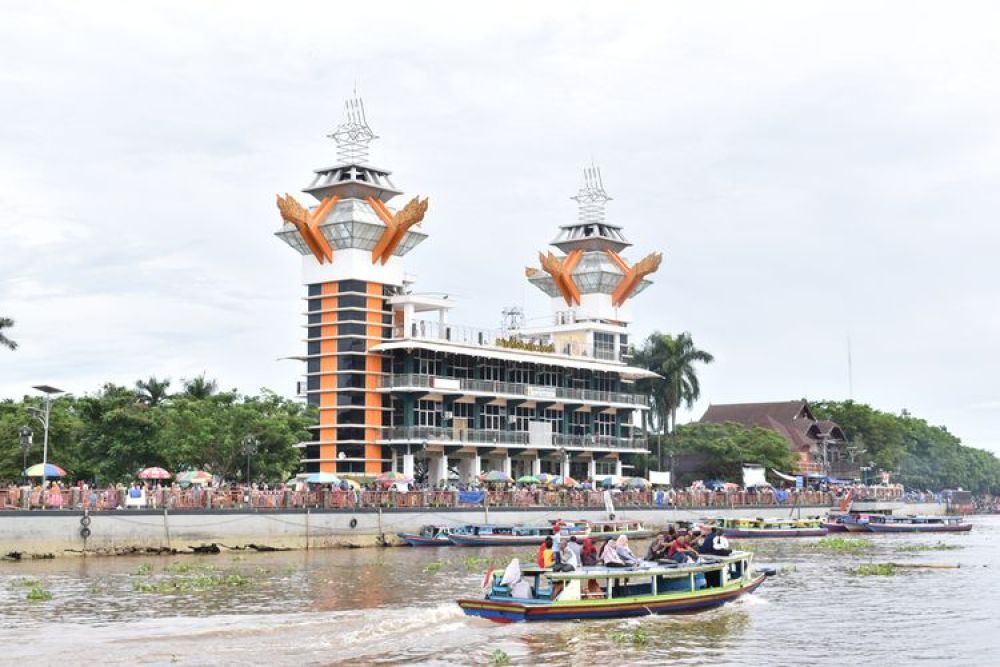

The history of tourism in Banjarmasin, the capital city of South Kalimantan, Indonesia, can be traced back to the days when it was a bustling trading center of the Banjar Kingdom. Its strategic location on the Barito River made it an important port, drawing the attention of traders from across the archipelago and beyond. This early interaction with various cultures and peoples laid the groundwork for Banjarmasin's tourism.
During the Dutch colonial period, Banjarmasin gained prominence as a vital supplier of raw materials, which further increased international awareness of the region. However, it wasn't until the post-colonial era that Banjarmasin began to emerge as a tourism destination. Travelers started to explore beyond Bali and Java, seeking new experiences in other parts of the archipelago, including the lesser-known Banjarmasin.
In recent decades, efforts have been made to promote Banjarmasin's unique cultural heritage and natural beauty to tourists. Efforts by the local government to improve infrastructure, such as the development of hotels, restaurants, and transportation networks, have made the city more accessible and comfortable for visitors.
A major attraction that has placed Banjarmasin on the tourism map is its traditional floating markets, like the Lok Baintan Floating Market and the Siring Martapura River Market. These markets showcase the local way of life and have become a highlight for tourists seeking authentic cultural experiences.
Additionally, the region's push towards ecotamination, recognizing the growing trend towards sustainable and nature-based travel, has also started to attract a niche set of travelers interested in experiencing the city's unspoiled environments and biodiversity.
In the wake of global travel changes, Banjarmasin tourism has been adapting to new trends such as the rise of digital nomadism, with more people looking for destinations that offer the possibility to work remotely while enjoying new cultures. The city's potential for river-based tours and increased interest in its culinary scene are likely to shape its future tourism strategy.
In conclusion, the history of tourism in Banjarmasin has evolved from its origins as a trading hub to an emerging destination for authentic cultural and ecological experiences. With ongoing development and promotion, Banjarmasin continues to welcome an increasing number of visitors eager to discover its unique charms and attractions.